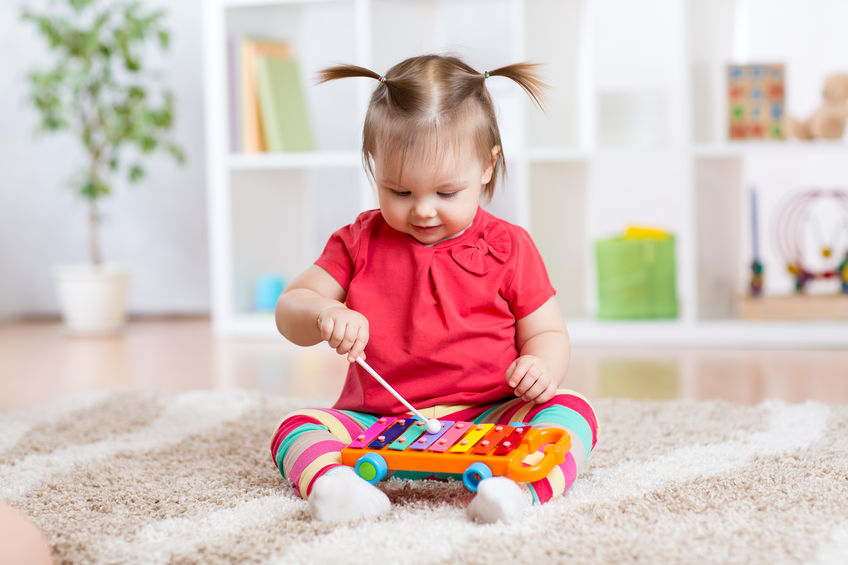
I still remember my first early childhood music therapy experience like it was yesterday, even though it was well over a decade ago during graduate school. My practicum client was a 2-year-old girl diagnosed with sensory processing disorder, and it was during our first session together that I knew I would end up working with children.
While completing my masters degree and music therapy internship, I earned extra income by leading early childhood groups at my church. In my early professional career, I facilitated early childhood music therapy sessions at The Autism Program. My very first private practice client was a 6-month-old baby diagnosed with Down syndrome.
All roads led to where I am right now: facilitating early childhood groups and classes while also creating resources for other music therapists, educators, and professionals who work with young children.
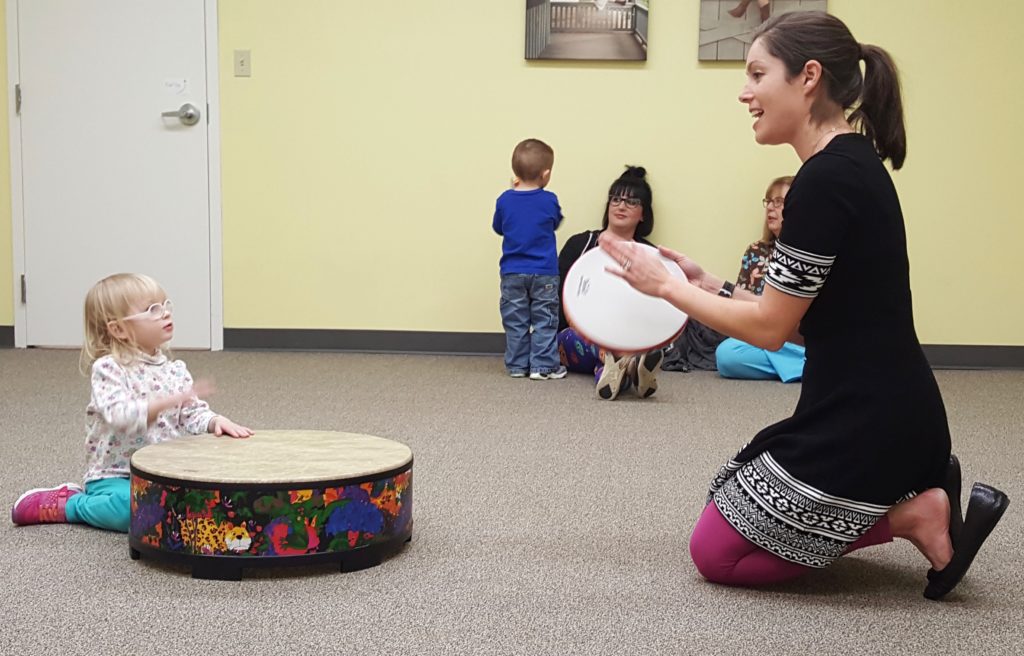
My experience working with this population has led to amassing quite the collection of songs that are engaging, motivating, and lead to goal achievement. This collection has grown to include hundreds of songs, including many written by children’s music artists as well as by me.
But I’ll start with 30 traditional songs that, in my opinion, should be a staple in your early childhood music therapy repertoire.
- “Aiken Drum”
- “The Alphabet Song”
- “The Ants Go Marching”
- “Apples and Bananas”
- “The Bear Went Over the Mountain”
- “BINGO”
- “The Cuckoo”
- “Down by the Bay”
- “Down by the Station”
- “Five Green and Speckled Frogs”
- “Five Little Ducks”
- “The Green Grass Grew All Around”
- “Head, Shoulders, Knees and Toes”
- “Hickory Dickory Dock”
- “Humpty Dumpty”
- “If You’re Happy and You Know It”
- “Itsy Bitsy Spider”
- “Kookaburra”
- “Looby Loo”
- “Mr. Sun”
- “Old MacDonald Had a Farm”
- “The Raindrop Song”
- “Row, Row, Row Your Boat”
- “Shake My Sillies Out”
- “Skidamarink”
- “Ten in the Bed”
- “This Old Man”
- “Twinkle Twinkle, Little Star”
- “The Wheels on the Bus”
- “You Are My Sunshine”
I still use all of the songs above regularly with my young students and clients. They work because they are simple and familiar — two key factors when it comes to serving this population.
As a new music therapist, I had a tendency to overcomplicate my repertoire and interventions, and I’ve seen my own interns and young colleagues do the same. But once I came back to the basics, I became a much more effective practitioner.
What traditional songs would you add to my list for early childhood music therapy?

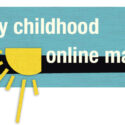

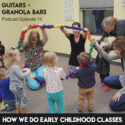
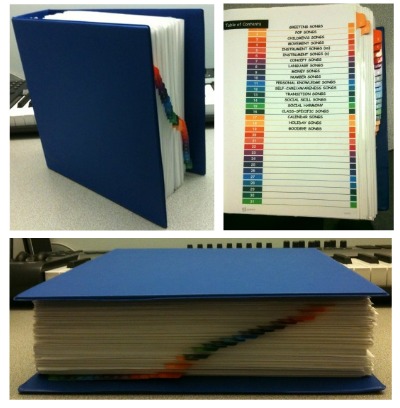
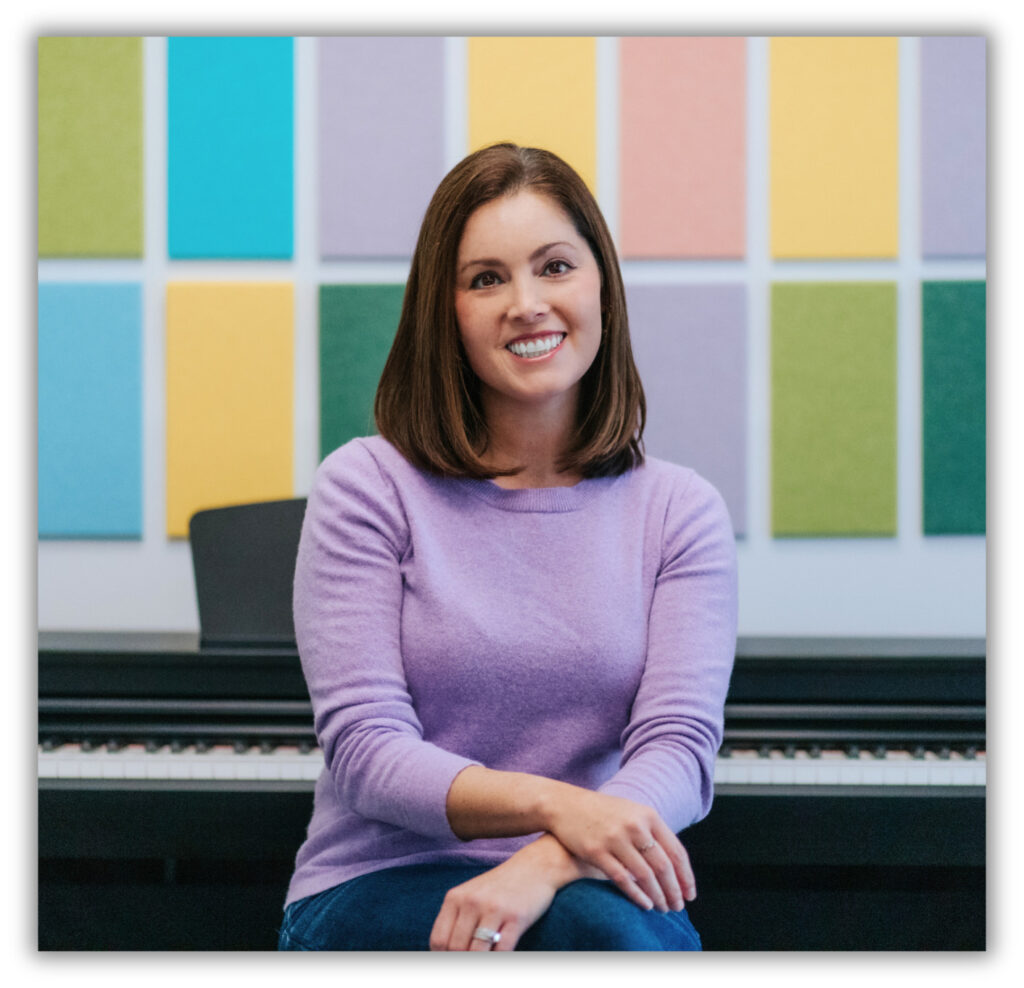
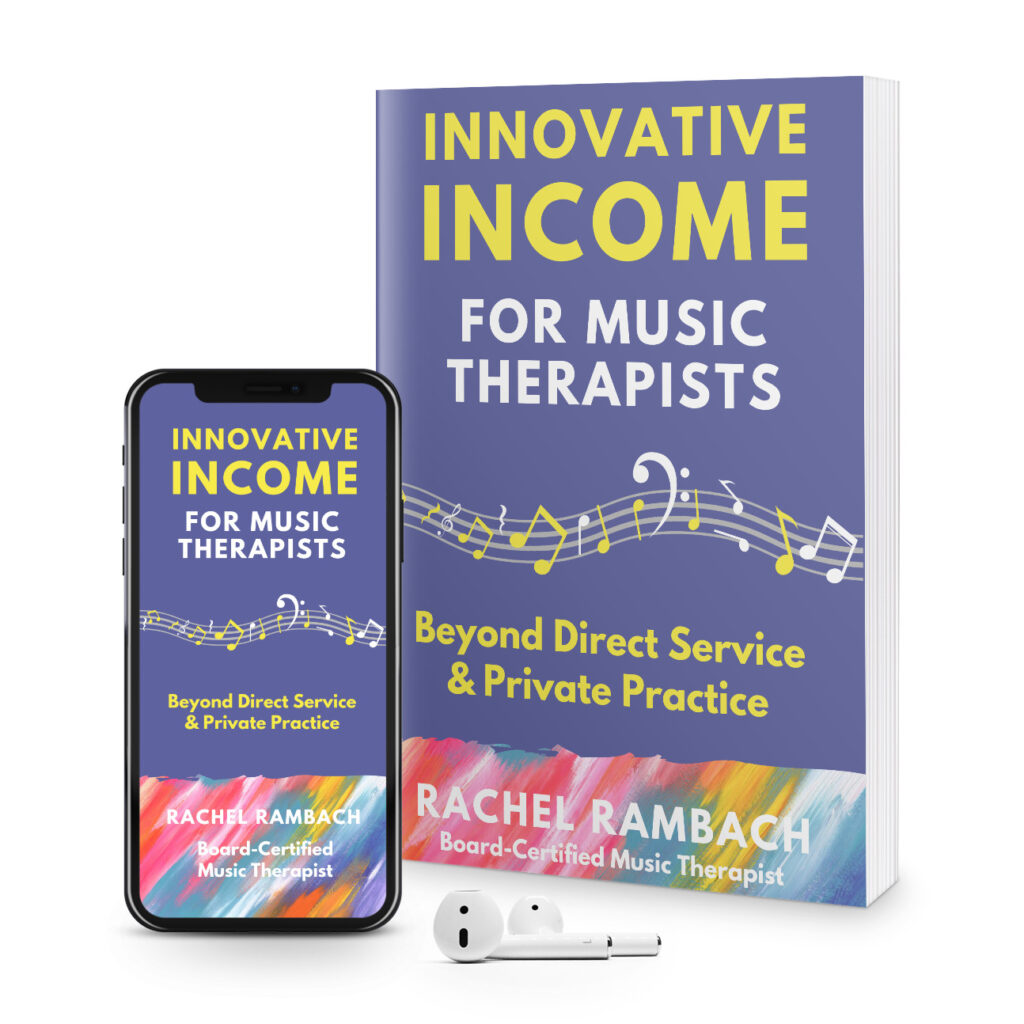
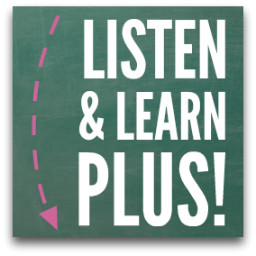
Thank you, Ms. Rachel, for sharing the bunch of songs with us.
You’re welcome! I hope you find it helpful! :)
Hi Rachel! I am a speech pathologist that works with very young children and was poking around on the internet to find some ways to incorporate music into my therapy sessions. Do you think you could give me some examples of what you do in your sessions? I can really relate to what you said about having a tendency to overcomplicate your repertoire and interventions.